The Ars Electronica Features Exhibition is a platform for partner institutions from around the world to present artistic perspectives and research-based practices that resonate with the festival’s curatorial theme. In 2025, under the title PANIC – yes/no, this collaborative exhibition examines the multiple and entangled crises of our time: ecological breakdown, algorithmic opacity, systemic inequality, and the erosion of democratic structures.
Rather than asking whether panic is appropriate, the contributions explore how states of urgency are produced, navigated, and resisted. Panic is not treated as a moment of chaos to be avoided, but as a cultural and political condition that demands attention, analysis, and creative response. Across installations, performances, and speculative formats, these works move from crisis to critique, from a feeling of being overwhelmed to imagination.
Several partners explore ecological panic not only through data or dystopia, but through the body, the senses, and collective rituals. Ecocentric Future Lab stages an exhibition that includes edible bioplastics, AI-generated haikus from melting ice, and speculative pharmaceutical solutions to plastic pollution—inviting audiences literally to taste, feel, and metabolize environmental collapse. Gluon, through its STARTS4WaterII program, connects artistic research with water systems: performances along the Danube, soundwalks, and river mappings reframe waterways as active participants in our environmental futures.
Digital panic—rooted in hidden infrastructures, extractive logics, and epistemic instability—is at the core of the work presented by Tetem. Their immersive installation invites audiences to interact with algorithmic sculptures that respond to typed questions, unveiling stories of bias, exploitation, and forgotten knowledge systems. Similarly, V2_, Lab for the Unstable Media, takes a visceral approach with PANIC MODE: ON, where controlled explosions become both metaphor and method: an invitation to engage materially and performatively with breakdown.
Taiwan’s C-LAB Sound Lab contributes Polyphony, a multifaceted program spanning immersive installations, concerts, and VR experiences. Evoking the musical and philosophical concept of simultaneous voices, Polyphony reflects Taiwan’s cultural and technological complexity, offering artistic strategies for navigating contradiction, coexistence, and interdependence.
Together, these projects do not merely illustrate panic—they perform it, dissect it, and reimagine it. They show how artistic practices can navigate states of emergency not by simplifying or denying them, but by opening up new ways of sensing, thinking, and acting. The Ars Electronica Features Exhibition becomes a space of constructive rupture: a collective rehearsal for futures that remain uncertain, yet also within the realm of imagination. Alongside these highlighted contributions, many more partner institutions enrich the program with diverse perspectives and urgent propositions—each expanding the shared inquiry into the role of art and technology in a time of overlapping crises.
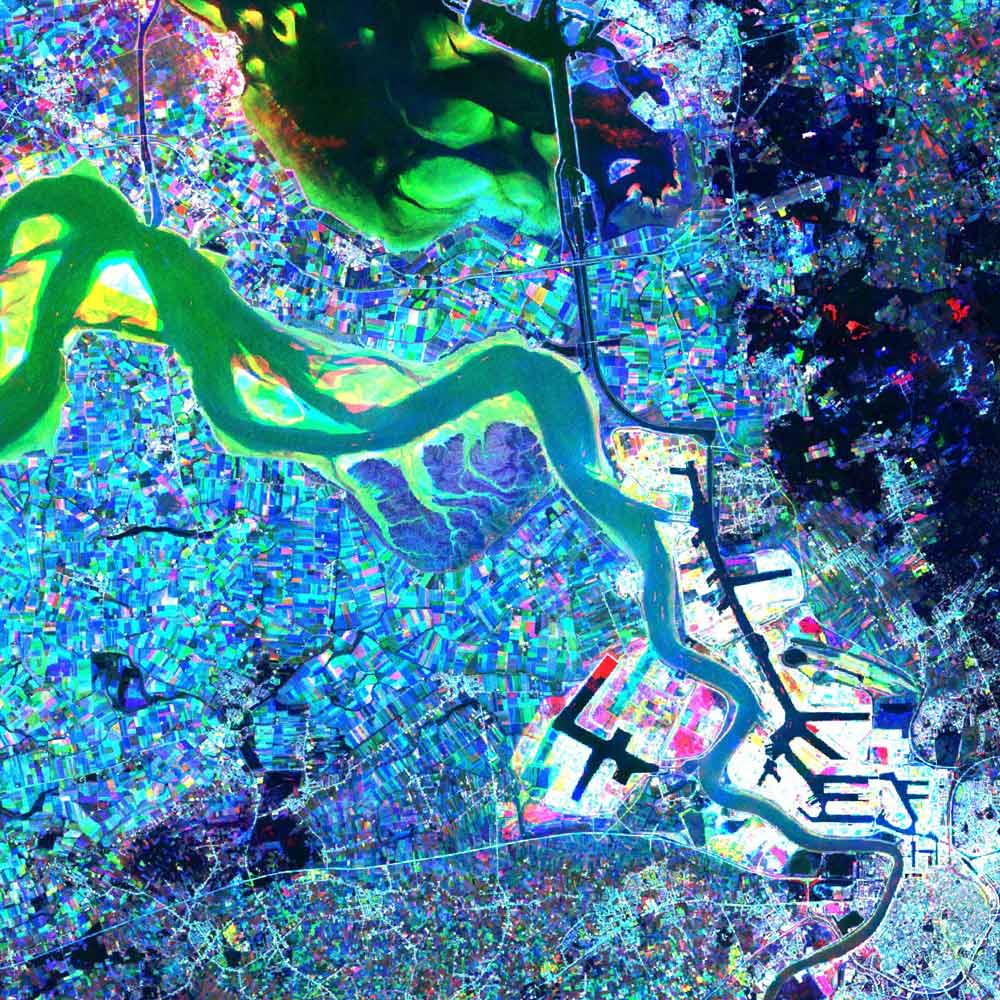
Anthropocene Territories / Territorial Agency / John Palmesino, Ann-Sofi Rönnskog - Photo: Territorial Agency
Exhibition
Ars Electronica Features Exhibition
POSTCITY, First Floor, Features Exhibition
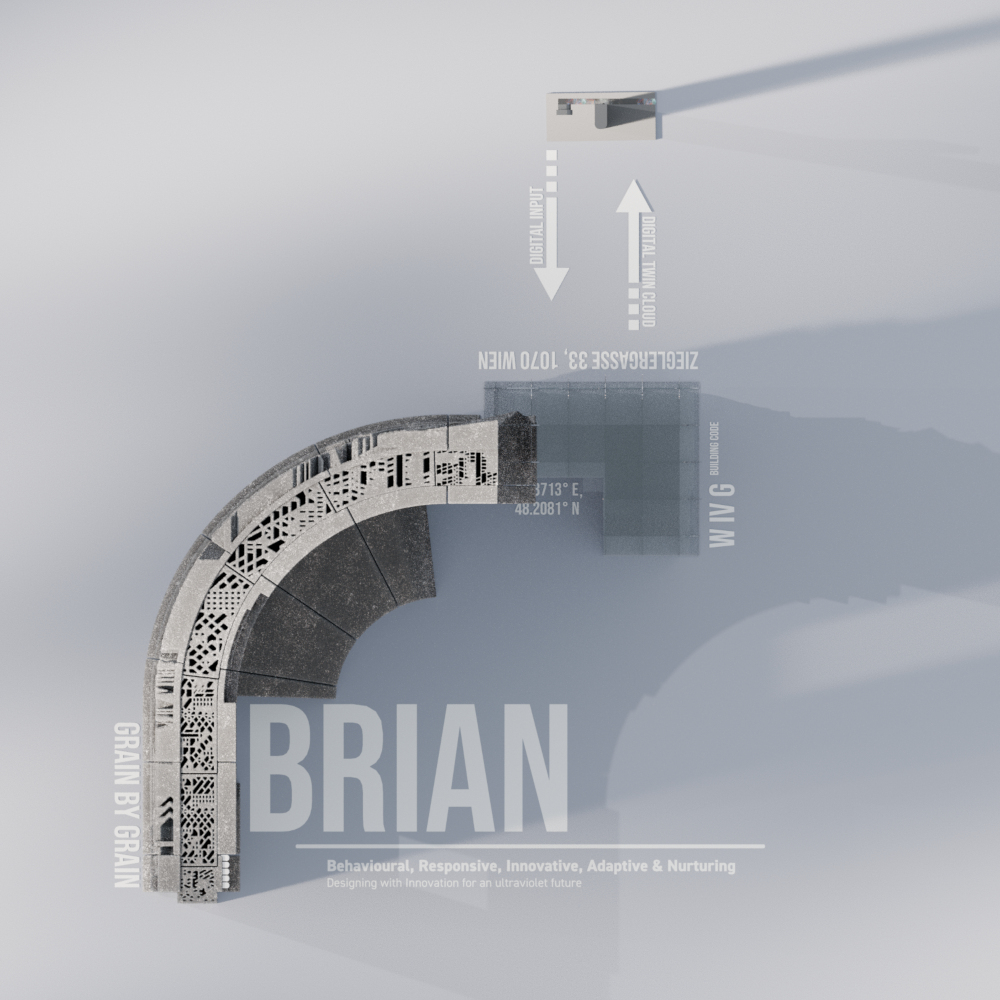
BRIAN
Joyh Design / Oliver Thomas Hamedinger (AT), Jade Bailey (GB)
Can we move beyond sealed enclosures to rediscover a responsive way of inhabiting the world? BRIAN is a proposition, an experiment, and a step toward spaces that nurture rather than confine, poised to push toward a no-panic future.
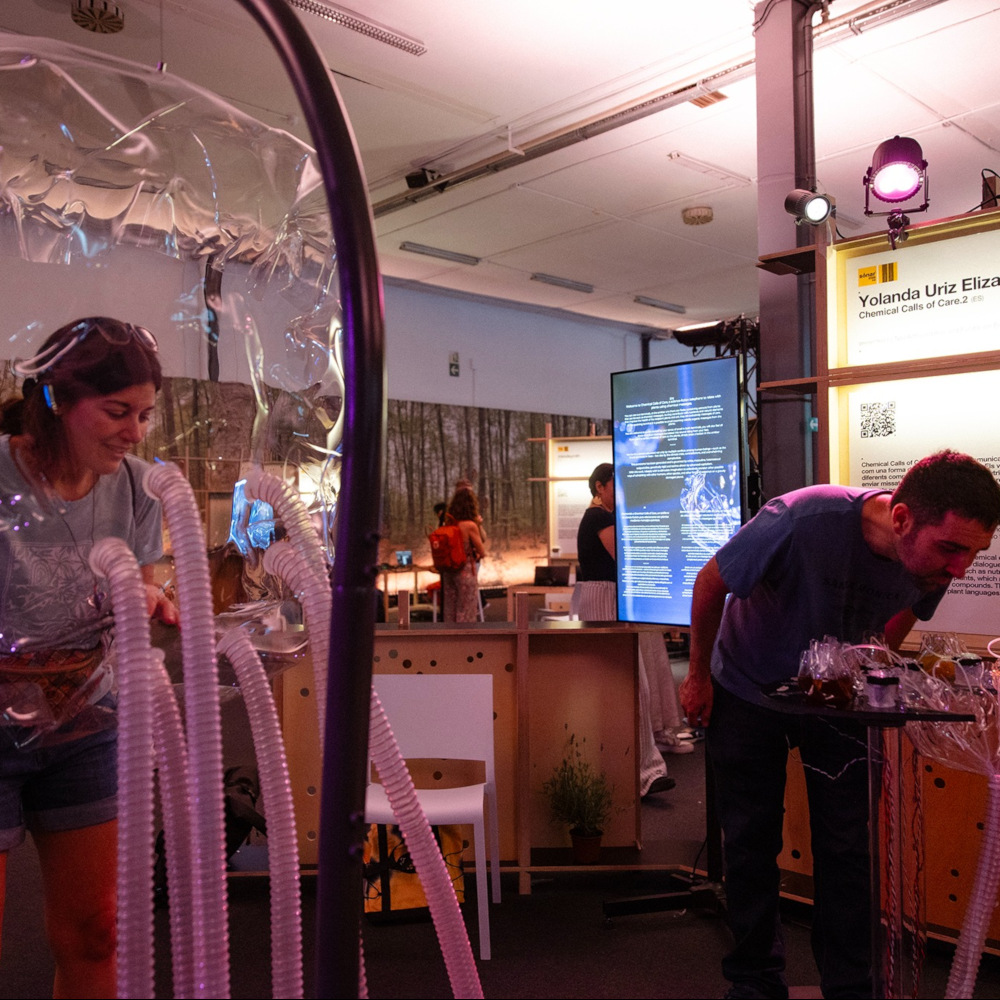
Chemical Calls of Care II
New Art Foundation (ES) / Yolanda Uriz (ES)
Chemical Calls of Care II is an interactive installation that explores interspecies communication through scent and sound. Using olfactory signals and atmospheric data, it invites humans and plants into a horizontal dialogue rooted in empathy, care, and ecological balance.
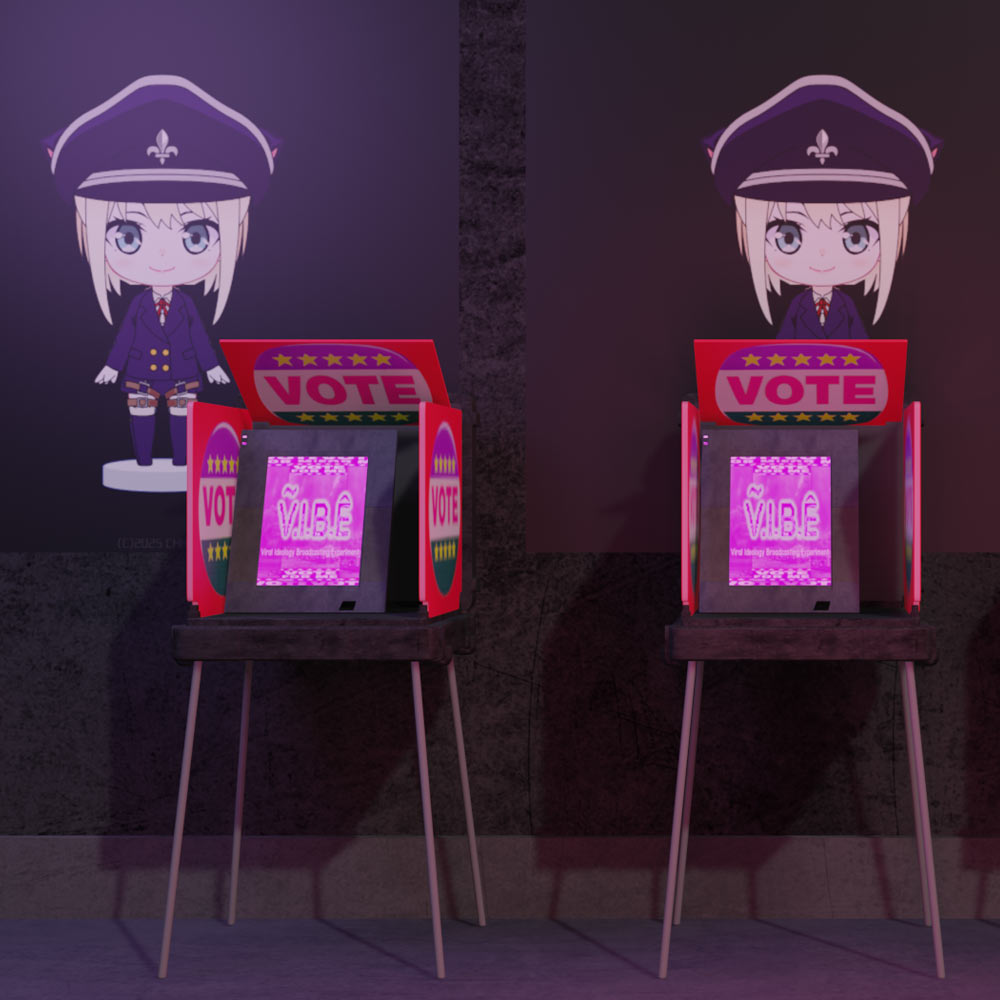
CODE 2025: Technosferatu and V.I.B.E.
IMPAKT (NL)
CODE is a co-creation process that addresses urgent issues in our digital reality. It presents critical, humorous, and provocative visions of a world dominated by Big Tech narratives. The work functions as an eye-opener and conversation starter that helps raise awareness around digital rights.
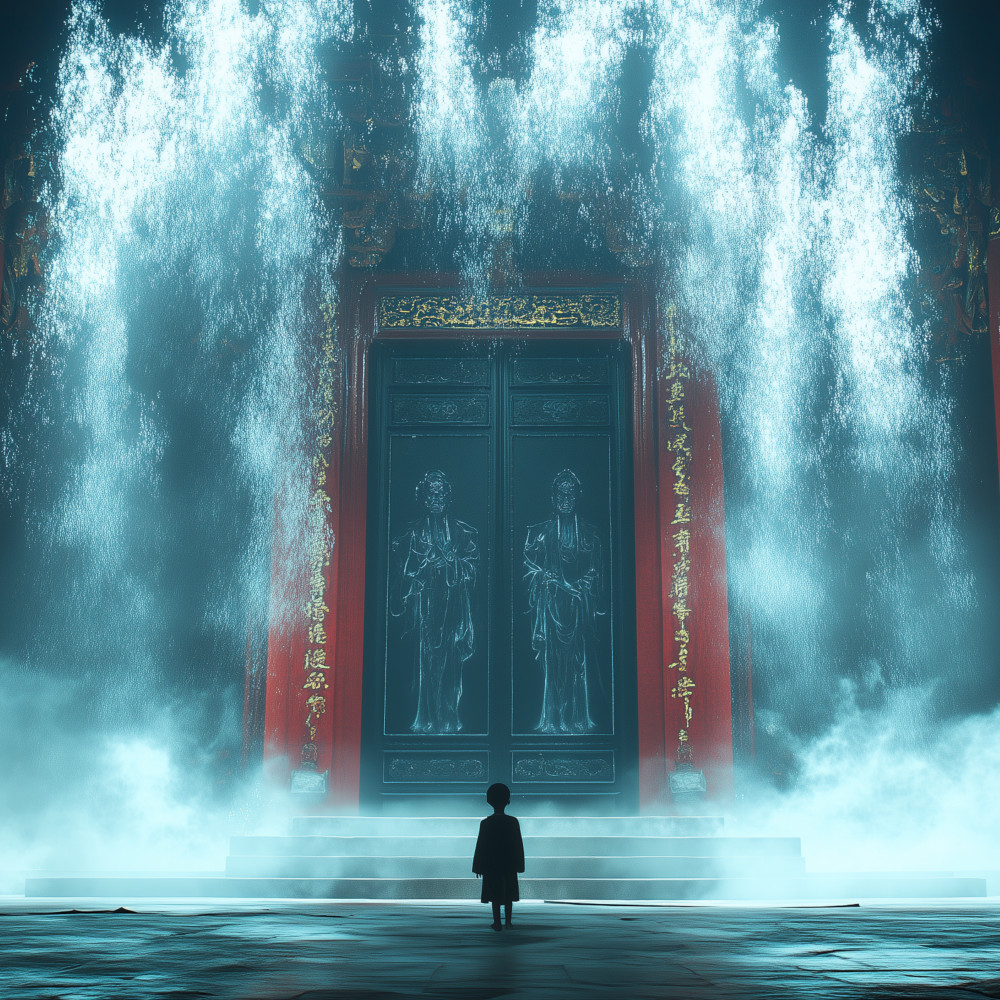
Digital Deities: The Spirit of Restoration
The Metaverse Alliance (TW)
In shifting digital light, AI twin technology merges their forms with yours, creating a dialogue across time. Stand before the digital gate—your image fuses with the divine, inviting you to share in protection and tradition. This union of art and tech honors Taiwan’s spiritual heritage.
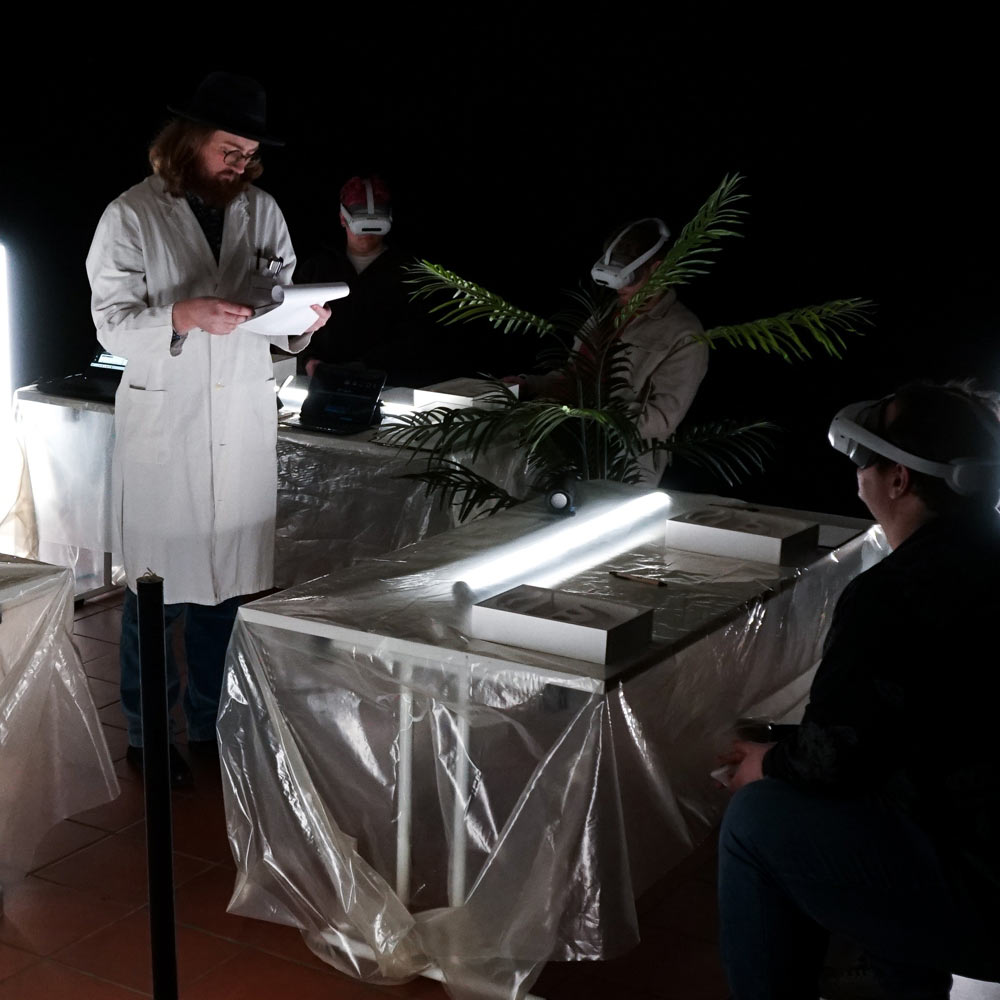
Ekklesia
Staatstheater Augsburg (DE)
Create a new civilization in Ekklesia, a Virtual Reality city-building simulation. This performance combines theater with cutting-edge technology, while satirically confronting the audience with questions of social structures and the consequences of their own decisions.
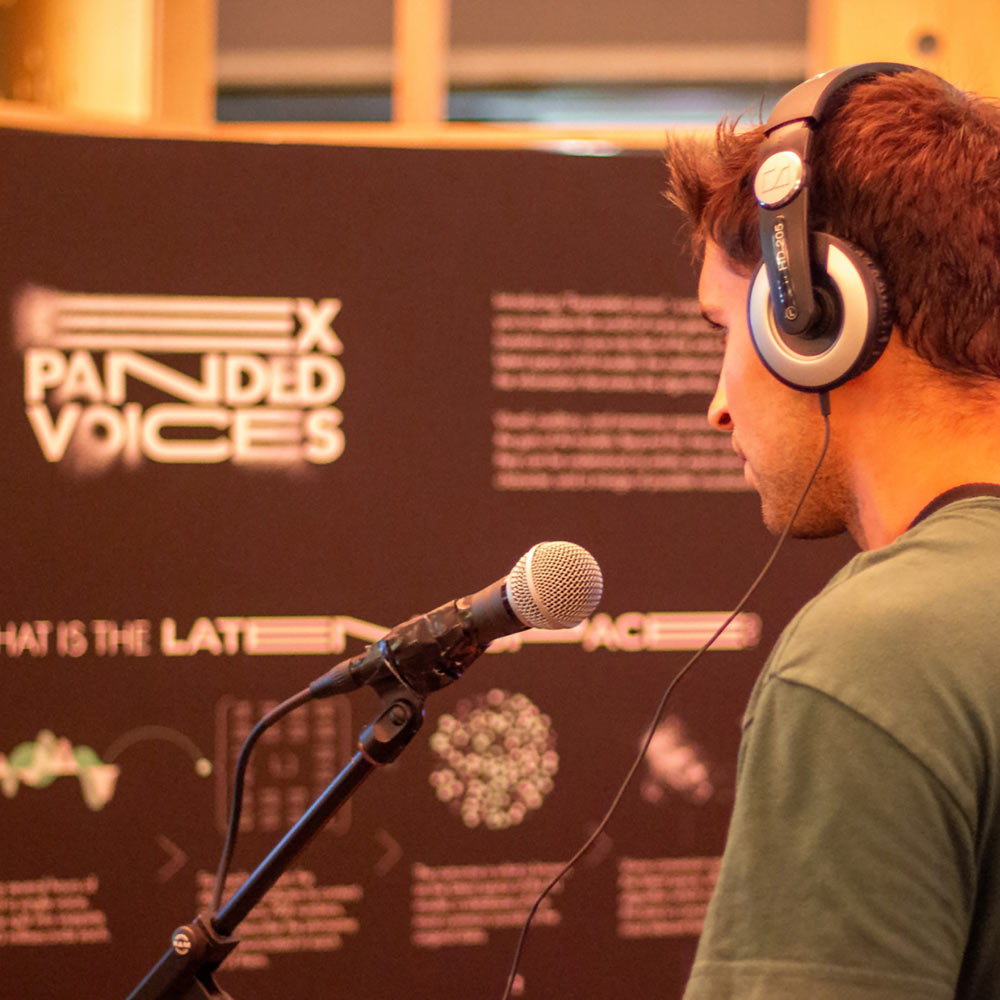
Expanded Voices
DataViz Group at Barcelona Supercomputing Center (ES)
Expanded Voices is part of a long-term collaboration between Barcelona Supercomputing Center (BSC) and artist Maria Arnal. It explores AI voice synthesis and the creative potential of latent spaces for applications in industry, music, and visual arts.
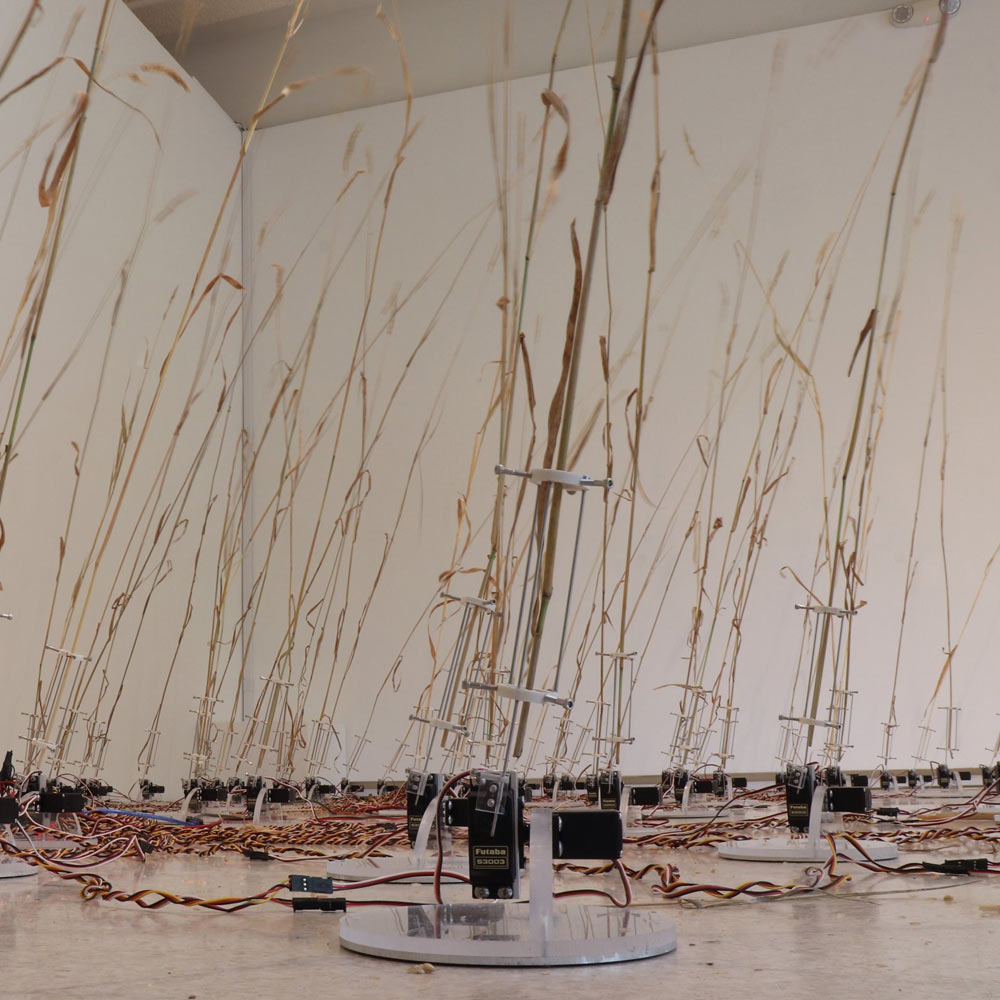
Futures Entangled: Material Intelligence, Memory & Movement
Istanbul Digital Art Festival (IDAF)
Part of the festival’s PANIC – yes/no theme, the exhibition weaves together migration and ecological crisis into a narrative explored through installation, VR, and data art, uncovering the emotional, material, and technological layers of displacement, adaptation, and survival.
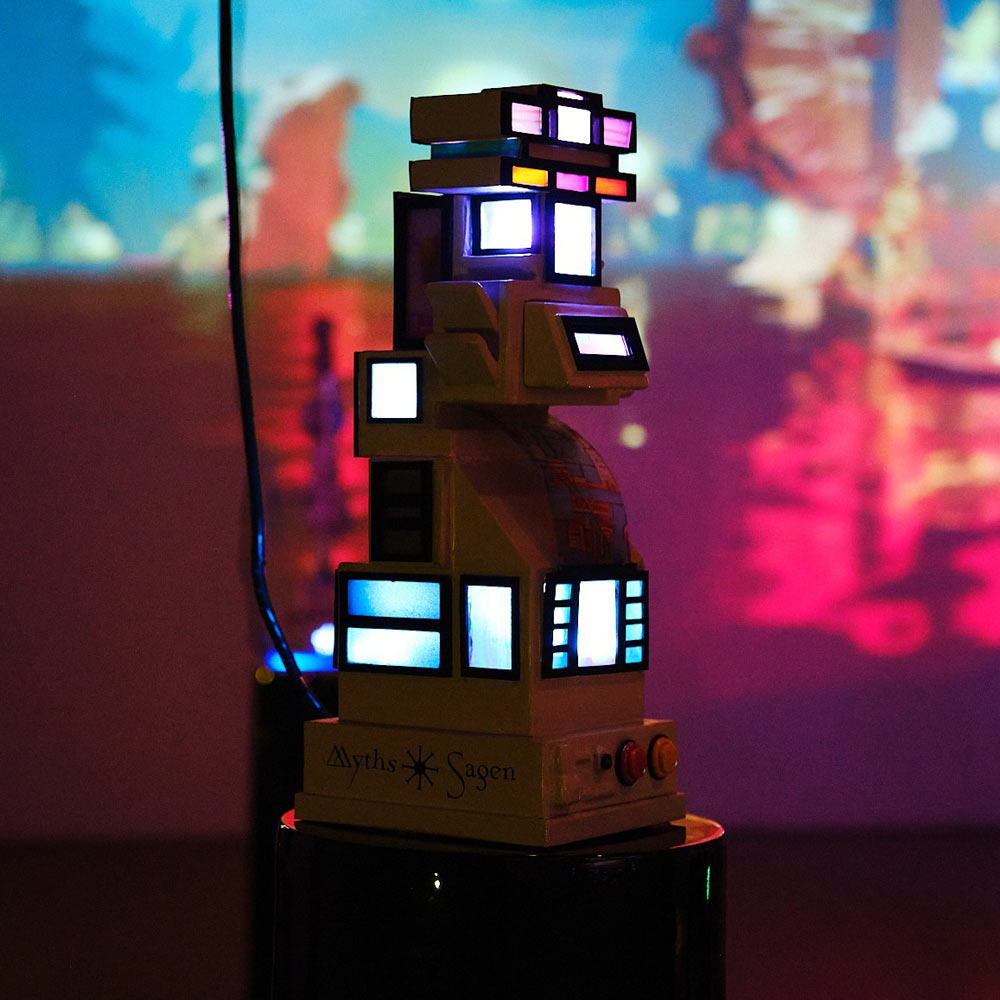
Model Collapse
Tetem (NL)
Model Collapse is an immersive exhibition that explores the hidden landscape behind generative AI. Through cyber sculptures and relics, it reveals the origins of AI in resource and data extraction. Visitors interact with a local AI, triggering responses and stories held by the cyber sculptures.
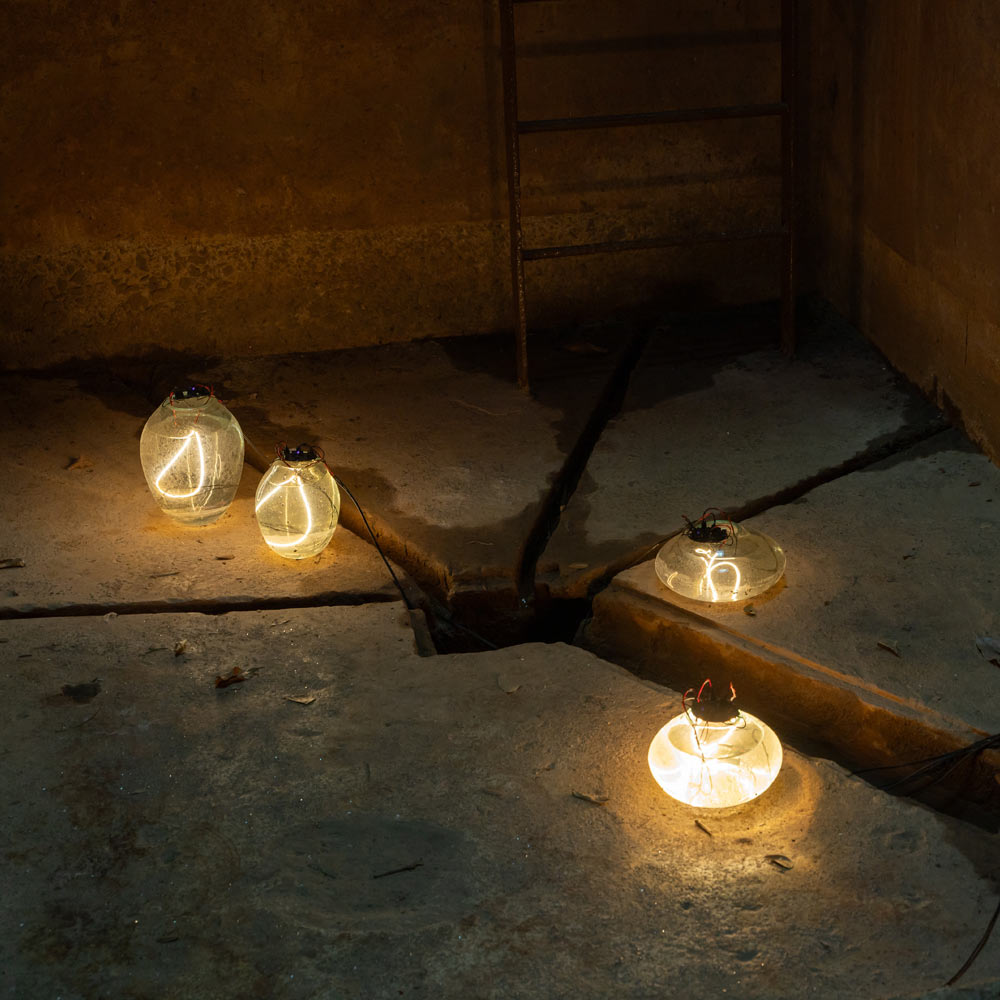
On Point
National Arts Council Singapore (SG)
On Point critiques humanity’s urge to oversimplify and overcategorize definitions and crisis borne from panic. The exhibition features lightmode, an invitation to pause amidst the chaos through the exploration of sensorial technologies.
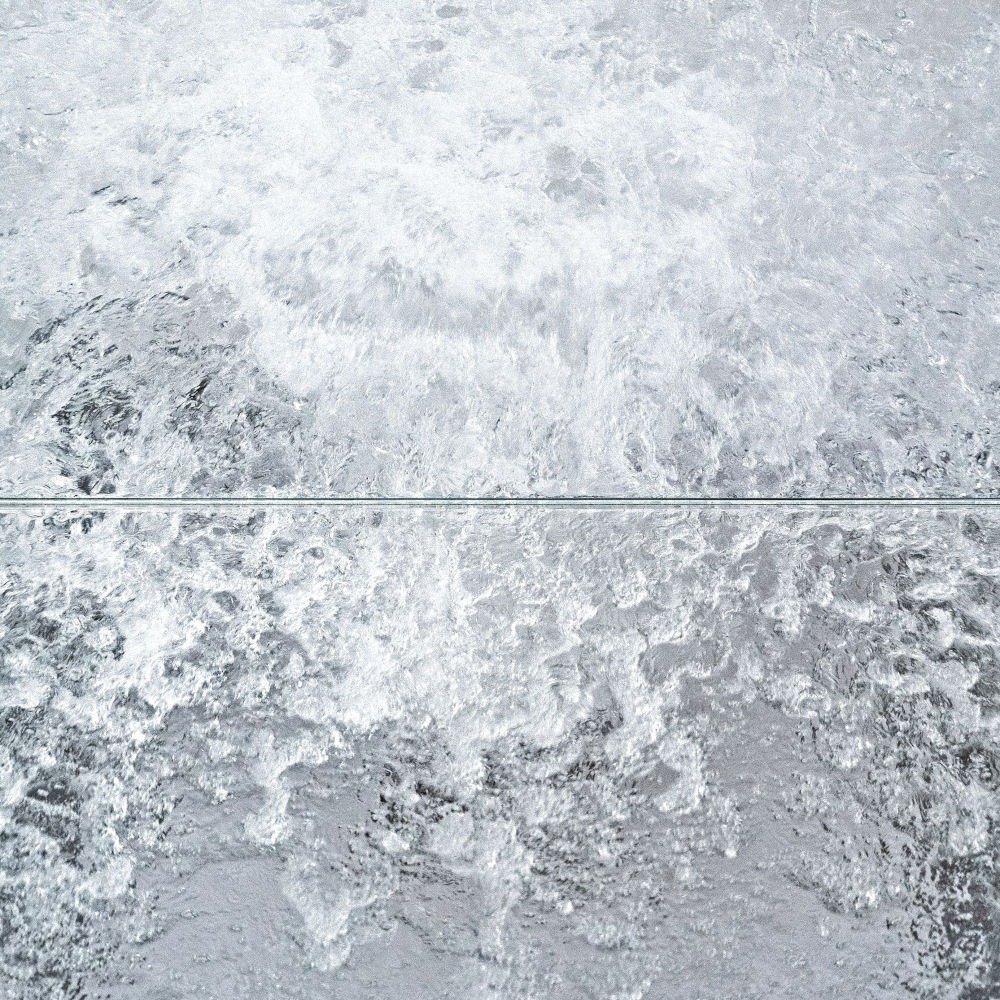
PANIC MODE: ON
V2_, Lab for the Unstable Media (NL)
In a world that is in a constant state of emergency, we are beyond the point of asking whether to panic or not. Instead, V2_, Lab for the Unstable Media, is presenting the exhibition PANIC MODE: ON.
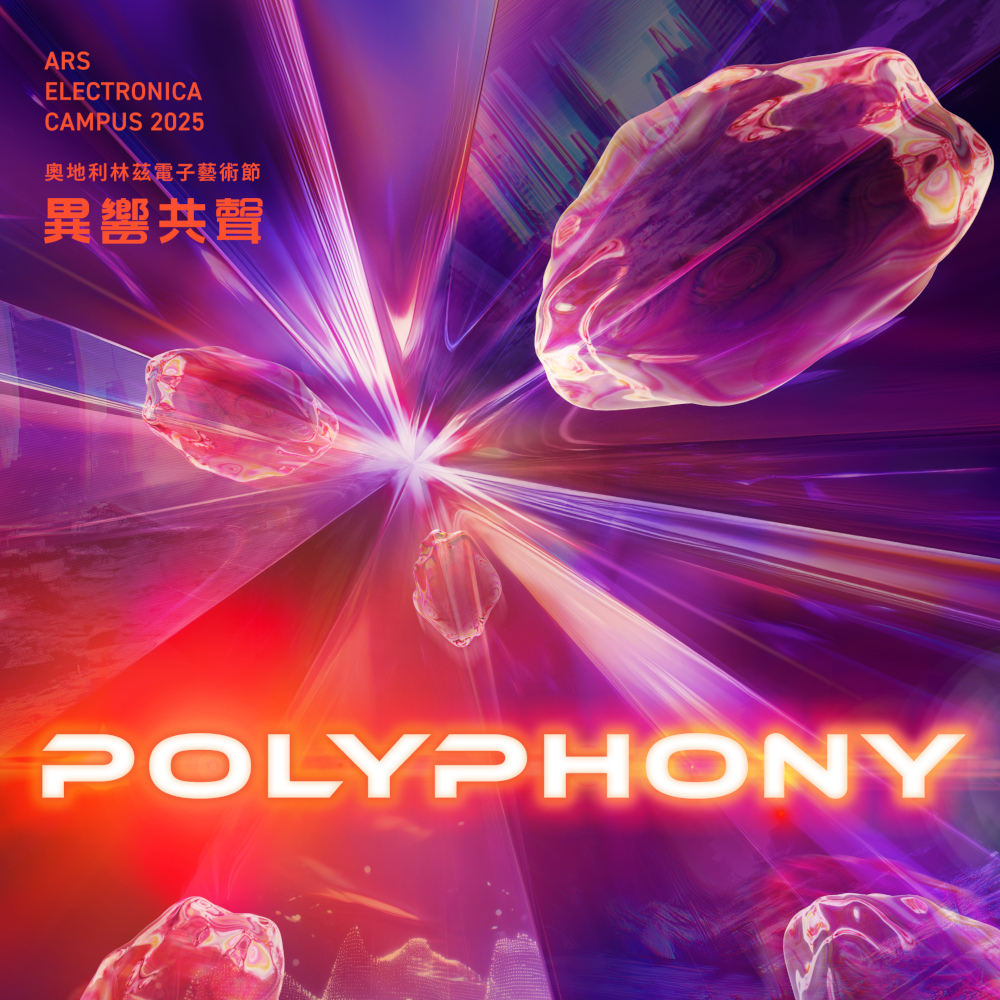
Polyphony
C-LAB Taiwan Sound Lab (TW)
Spanning kinetics, interactive programming, AI, sound design, instrumental performance & video/VR, Polyphony reflects Taiwan's diversity and inclusivity in terms of culture, humanities, environmental care, and scientific/artistic innovativeness and offers new audiovisual, perceptual experiences.
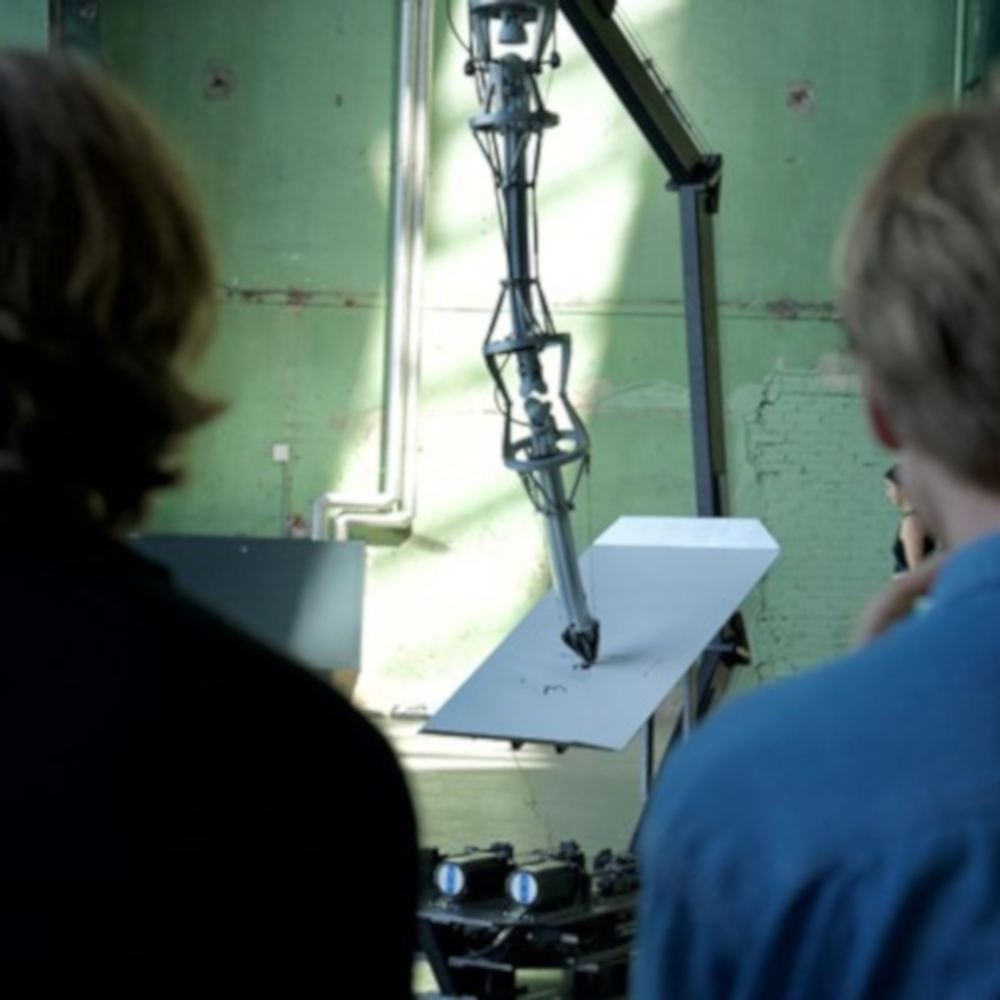
robo signans
Emergence Delft (NL)
robo signans is a kinetic installation featuring three autonomous robots that draw. Created by Emergence Delft and artist Jorrit Paaijmans (NL), the project explores the relationship between humans and machines, raising questions about creativity, authorship, and functional design.
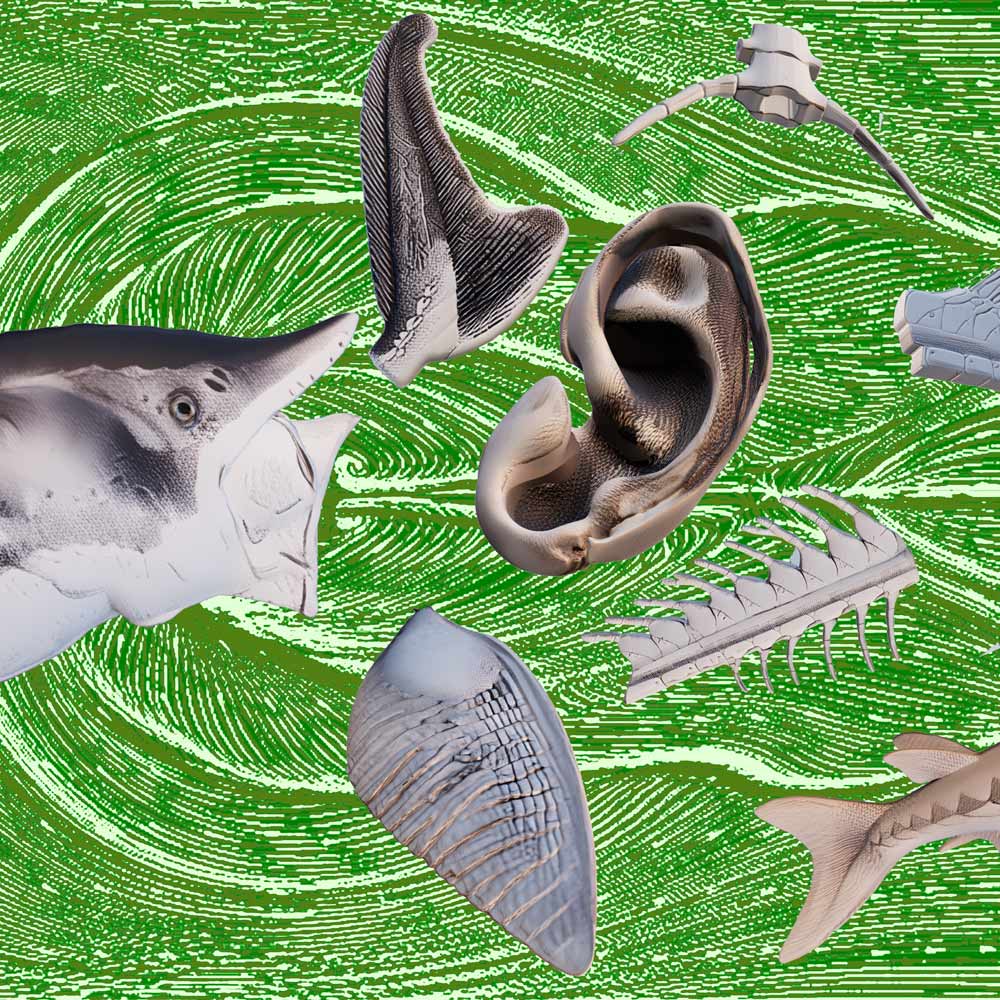
STARTS4WaterII—Residencies showcase
Gluon presents a curated selection of projects emerging from the STARTS4WATERII residencies, where artists, scientists, and local communities collaboratively explored the often invisible ecological and social challenges of Europe’s ports and portcities.
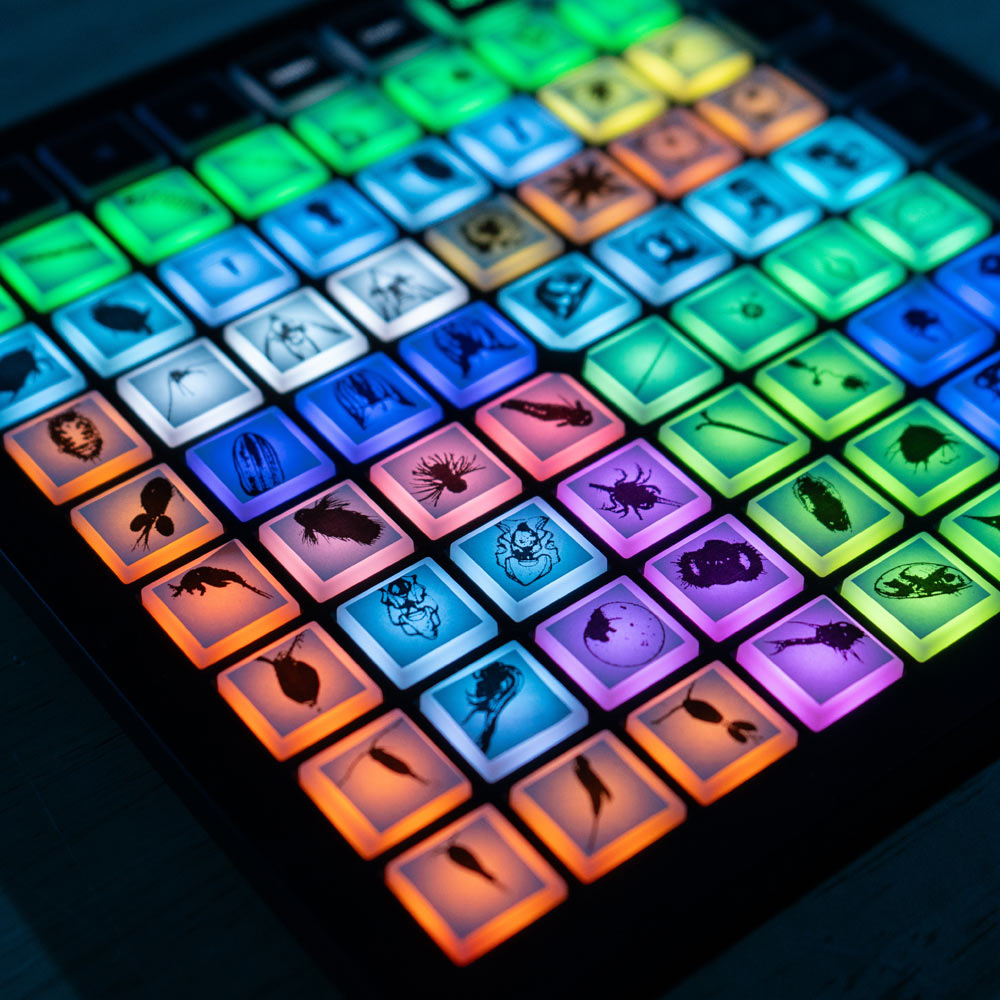
That sinking feeling: cell biology of climate change
Stanford University (US)
Plankton drive Earth’s climate from beneath the surface. This exhibition transforms scientific data into immersive experiences—revealing how microscopic ocean life shapes our planet’s carbon cycle and our shared future.
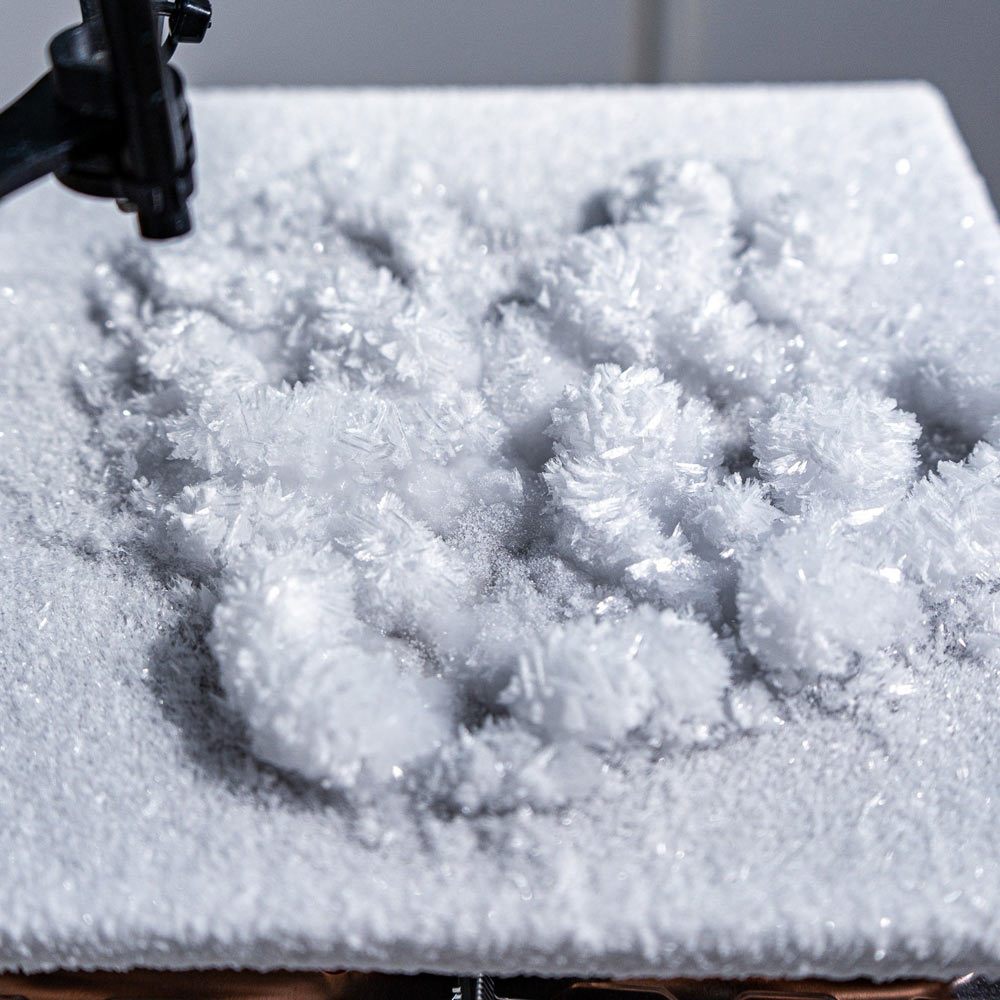
The Climate Tasting Menu
Ecocentric Future Lab, The University of Texas at Austin (US)
A dining performance where guests ingest edible plastics, enabled by bacteria from plastic-eating worms. An ice installation where local climates sculpt frozen terrains, translated into AI poetry. Two projects that digest consumerism and melt the myth of control—one bite, one drip at a time.

Yielding
Yasuaki Kakehi Lab., The University of Tokyo (JP)
This exhibition presents three fluid-based installations exploring the act of yielding. Each work evokes flow, form, and flux: morphing colors (Colors in the Haze), entangled motions (Entangled Liquidities), and organic silhouettes (Living Lens). A quiet invitation to change.